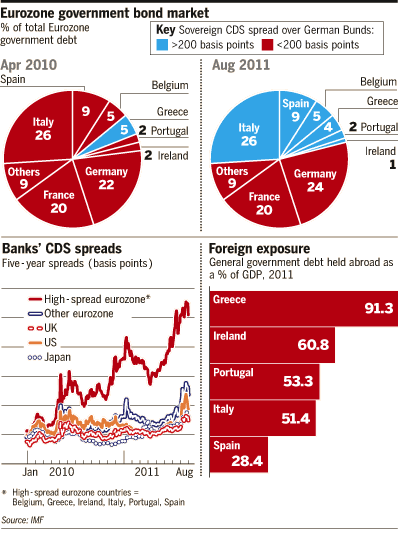The annual meetings of the World Bank and International Monetary Fund over the weekend brought together frightened and angry people. The financial crisis that broke upon the world in August 2007 has entered a new and, in crucial respects, more dangerous phase. A positive feedback loop between banks and weak sovereigns is emerging, with a potentially calamitous effect on the eurozone and the global economy: the eurozone is no island. What makes this process particularly frightening is that weaker sovereigns are unable to cope on their own, while the eurozone has nobody in charge. The eurozone may lack the capacity to address the crisis.
The underlying danger is laid out in the latest global financial stability report from the IMF. This is surveillance at its best: clear, compelling, courageous. So what is the message? It is contained in two sentences: “Nearly half of the €6,500bn stock of government debt issued by euro area governments is showing signs of heightened credit risk”; and, “As a result, banks that have substantial amounts of more risky and volatile sovereign debt have faced considerable strains in markets.” (See charts.)
